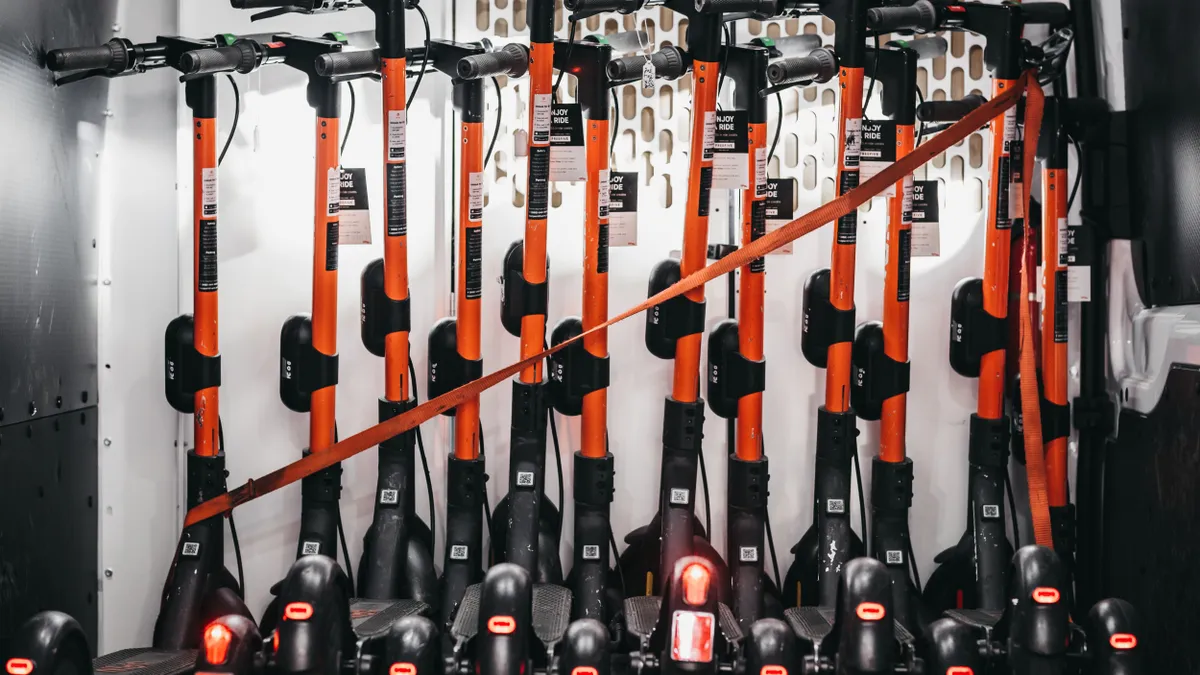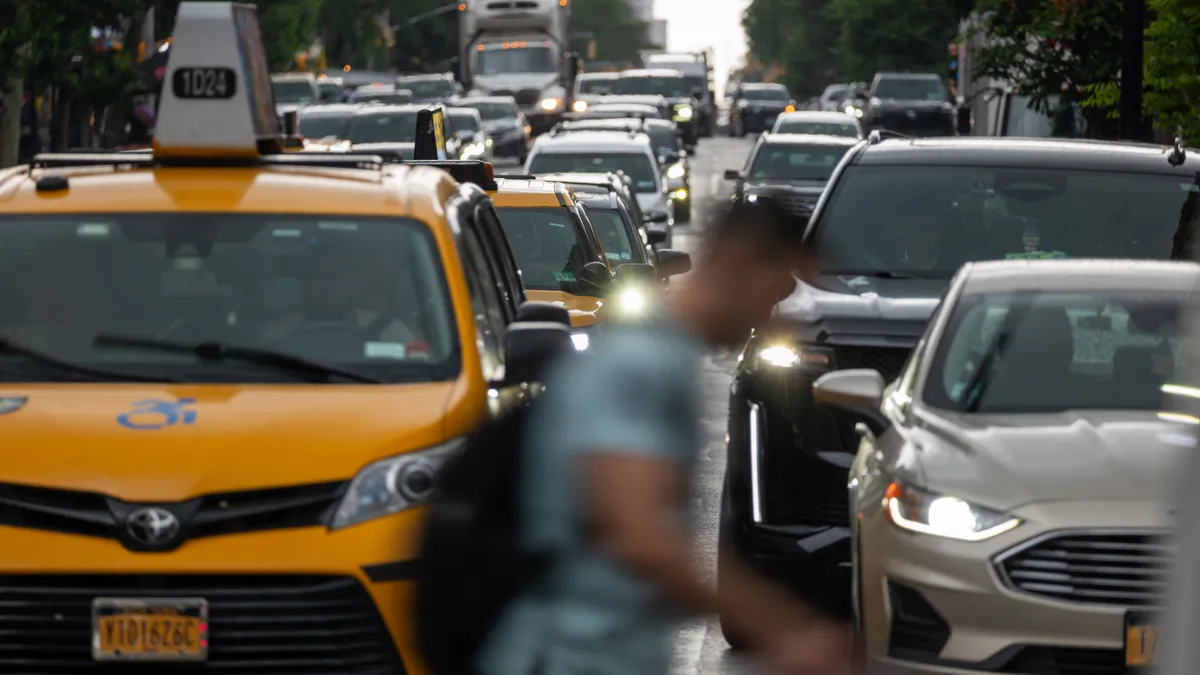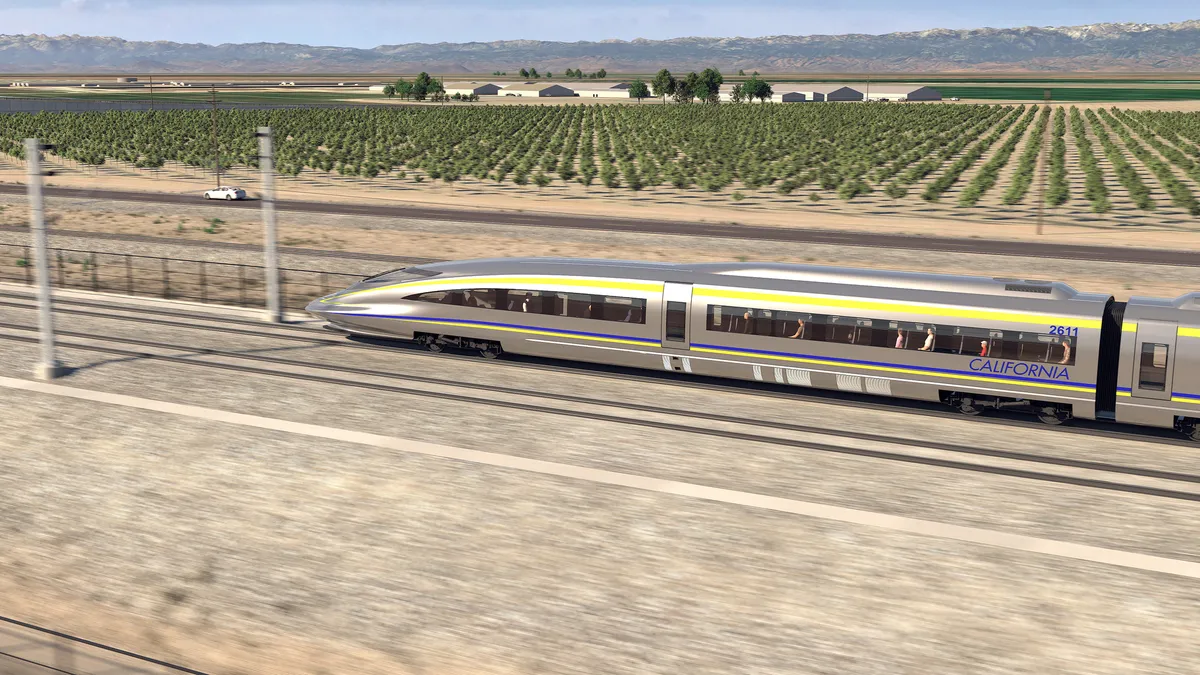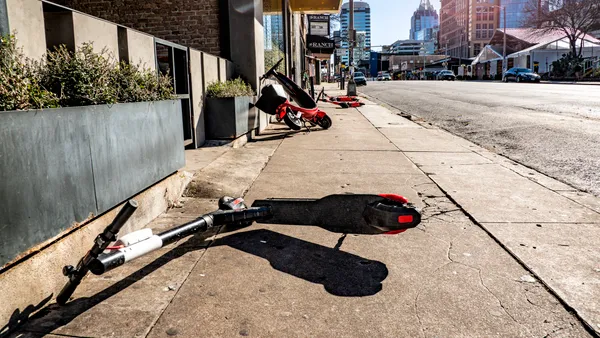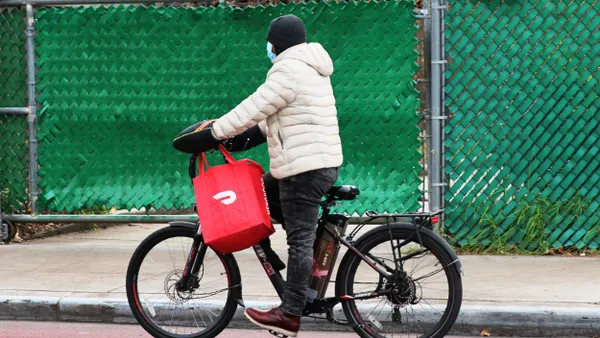Dive Brief:
- Micromobility company Spin said Tuesday it will begin electrifying its operations fleet this month in San Francisco and Washington, DC, while also using full-size electric vans to transport its scooters.
- Holly Gordon, Spin's vice president of policy, said that although there are not many commercial electric vehicles (EVs) currently available in the United States, the company intends to use a variety of modes to electrify its operations. Some of those modes include electric cargo bikes and other smaller vehicles, which will be helpful as Spin's new models have swappable batteries that can be recharged separately from its scooters.
- The company also announced that its local operations — including its manufacturing warehouses, operations vehicles and scooter charging stations — achieved carbon neutrality in 2020. The company said it became carbon neutral by purchasing carbon offsets, and contributing a portion of its revenue to Stripe Climate, which supports companies that help cut emissions.
Dive Insight:
Ford-owned Spin said its fleet electrification in Washington and San Francisco is significant as those cities are its two biggest markets, and Gordon said the company could make use of the all-electric Ford Mustang Mach-E for its operations vehicles. These efforts come on the heels of Spin touting new technology like so-called "scooter-hailing" and an on-vehicle artificial intelligence system, while also deploying public charging stations in some cities.
Spin said it calculated its carbon neutrality by taking a detailed look at its emissions in the more than 80 cities where it operates and the utility data for its warehouses; determining how many kilowatt hours of electricity are used to charge its scooters; and calculating how much gas and diesel are used by its fleet of vans. The calculations were then verified by Agendi, an independent third party business that helps businesses cut their carbon emissions.
Electrifying its fleet starting this month, which coincides with Earth Month, is a crucial piece of protecting the environment, Gordon said.
"The emissions from those vans is actually higher than the emissions from charging the scooters, there's more of a carbon footprint for the vans, not surprisingly, since they're larger," Gordon said. "So we felt like that was a really important piece to focus on, in terms of reducing our carbon footprint."
Scooter companies have come under fire in the past for their vehicles having short lifespans, and for some parts not being recyclable and contributing to emissions. But in addition to Spin, other major companies like Bird and Lime also appear to be acting on those criticisms.
Competitor Bird announced this week it offset all emissions associated with its scooter service in 2020, which it achieved by measuring its emissions and purchasing carbon offsets. Bird said it will further reduce its emissions by working on its battery hardware and other technology enhancements, as well as solidifying recycling partnerships and electrifying its operations fleet, which it said is still in progress.
Meanwhile, Lime pledged to achieve a a zero-emission operations fleet by 2030 last year, and later in 2020 announced it partnered with the World Wildlife Fund to promote cleaner transportation modes and reduce carbon emissions.
Looking ahead, Gordon said Spin's next priority is to ensure its entire supply chain is carbon neutral, although those discussions are preliminary. The company will explore areas like the types of materials being used to make the scooters, and how they are mined and retrieved. Gordon said the use of renewable energy at warehouses and other facilities will also be a priority.
With transportation the sector most responsible for carbon emissions, Gordon said scooters can play a big role in bringing those emissions down at all stages of their life cycle.
"I've been really interested in focusing on reducing emissions from the transportation sector, and I think that micromobility can be a really important part of that," she said. "Not just in terms of making sure that our product that we offer is a sustainable product… but also helping people get out of their cars for short distances."



